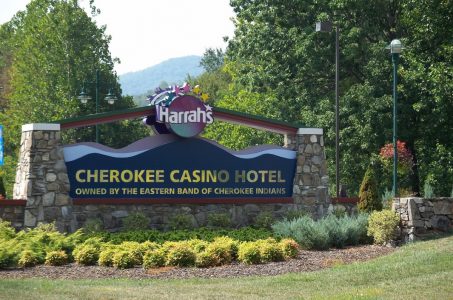Wyoming Tribal Casinos Face Predicted Job Losses, Lower Revenue
Posted on: September 1, 2020, 12:30h.
Last updated on: September 1, 2020, 03:06h.
Wyoming tribal gaming properties could lose some $20 million annually due to recent changes in statewide gambling rules, according to a former Wind River Hotel and Casino CEO.

Legislation approved by the Wyoming State legislature in March could also mean 350 jobs could be lost at tribal gaming sites, Jim Conrad told the Riverton Ranger, a local newspaper.
Profits from the casinos have funded operations of the Northern Arapaho Tribe, which runs key tribal gaming properties in the state.
The real loss … is the loss of jobs,” Conrad recently told the Riverton Ranger. “When you take 350 jobs lost, that’s 350 families on the reservation that are not going [to] have that income.”
In Fremont County, the Northern Arapaho Tribe provides the most jobs of any employer, totaling some 1,000 workers between the tribe and its varied enterprises, according to Wyoming Public Media.
The financial situation became direr for the state’s tribes this year after the COVID-19 outbreak. Other reported financial pressures led to even more economic struggles.
New Law Bring More Gaming
Under the new law, legal commercial gaming machines are allowed in small businesses and truck stops, according to the Riverton Ranger. That can lead to many more gaming locations statewide.
But some Wyoming residents may not want widespread gambling in their communities.
I would venture a good part of the state still does not want that gaming on every corner in their towns,” Conrad said.
In 2019, the Wyoming Public Policy Center set up by the Northern Arapaho Business Council (NABC), successfully lobbied against having multiple gaming sites in Wyoming. Then, last year, the council’s lobbyist, Mark Howell, was let go by the tribe, and lobbying efforts appeared to weaken.
As the state legislature considered the March legislation, criticism was voiced by NABC member Kimberly Harjo, who said the bill created “a slippery slope that will lead to full-blown gaming throughout the state,” and the tribe “strongly believes this legislation needs more input from regulators, law enforcement, the tribe, and the public,” the news report added.
Curbing Illegal Gaming
A major reason for the recent approval of small, legal commercial gaming in the state was because of Wyoming legislators who wanted a solution to the presence of illegal gaming machines. Another reason was many Wyoming politicians wanted to regulate the scattered commercial gaming properties to collect tax revenue.
Some proponents of the legislation argued the state loses about $4 million in receipts annually because of the unregulated gaming devices. As of last year, it was claimed that Wyoming was home to more than 400 unregulated gaming machines. Typically, they were in bars, gas stations, truck stops, and other small businesses.
Wyoming is home to four casinos. Wind River Hotel and Casino, Little Wind Casino, and the Shoshone Rose Casino and Hotel, all of which are tribal entities, are the state’s largest gaming properties. The state also houses the smaller 780 Smoke Shop & Casino.
Related News Articles
Most Popular
LOST VEGAS: The Foster Brooks Robot at MGM Grand
Bally’s Sets Date for Tropicana Las Vegas Implosion & Party
Most Commented
-
VEGAS MYTHS RE-BUSTED: You Don’t Have to Pay Resort Fees
— August 2, 2024 — 16 Comments -
VEGAS MYTHS RE-BUSTED: Elvis Was a Straight-Up Racist
— August 9, 2024 — 11 Comments -
ANTI-SOCIAL BEHAVIOR: Vegas Casino Buffet Stunt in Poor Taste Goes Viral
— August 16, 2024 — 7 Comments -
VEGAS MYTHS RE-BUSTED: The Strip Tried Appealing to Families and Failed
— August 23, 2024 — 7 Comments
















No comments yet